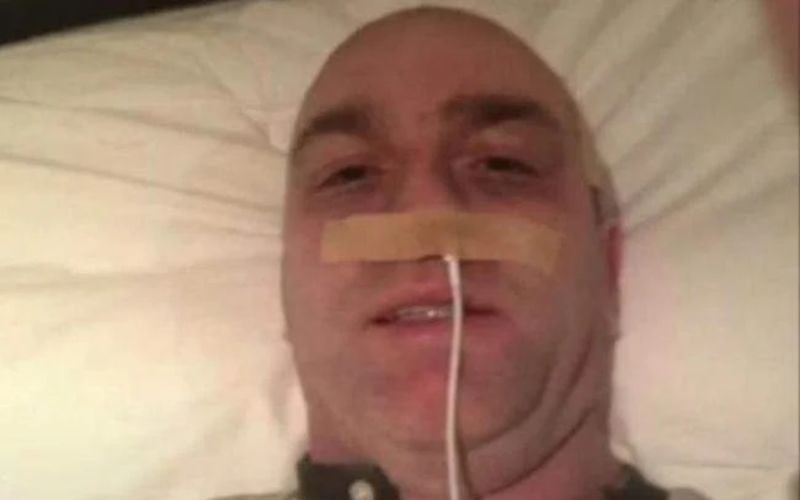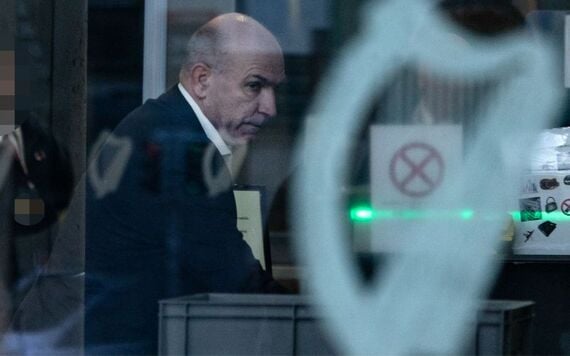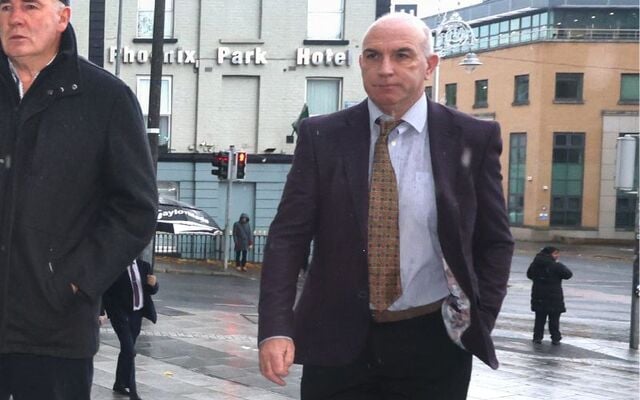Judge Martin Nolan said the 54-year-old had exploited the goodwill of his victims, who have not only lost thousands of euros, but also their faith in humanity.
Imposing the jail sentence on Carey, the judge said, "It’s very hard to know what motivated him, but what he did was grossly wrong. He took advantage of people he knew, and he exploited that situation."
He added: "Mr Carey was a formidable sportsman, both in hurling and golf. He was probably one of the best-known hurlers ever, known all across the hurling world and probably his reputation and fame had seeped into the general population.
"Obviously what he did has made him the subject of public odium and ridicule, his reputation is destroyed, his good name will probably never recover.’
Carey had pleaded guilty in July to ten counts of fraud, with a further eight being taken into account. The Dublin Circuit Criminal Court heard last Friday that he duped friends and acquaintances into giving him over €400,000 by falsely claiming he had cancer – a lie he maintained from 2014 to 2022.
He told his victims that he needed treatment in Seattle in the US for cancer, telling several that his status as an "elite athlete" meant he would receive some free treatment but that he needed help with travel, additional treatment and living costs.

DJ Carey with a phone charger up his nose pretending to be undergoing treatment for cancer.
Many had been promised that their money would be returned after Carey received a fictitious medical negligence payout. He claimed to one person that this was because he had an "excessive dose of radiation" during his treatment at St James’ Hospital in Dublin.
Read more
The Kilkenny legend, a five-time All-Ireland winner, produced fake letters, purported to be from a Seattle hospital, and showed people scars on his head to support his bogus claims.
His victims included businessman Denis O’Brien, who gave a total of €125,182 to Carey following his pleas for help, plus $13,000 to cover treatment expenses, and assisted him with accommodation in Dublin, as well as a car. None of that money was ever paid back.
One victim was a widower, while another man’s wife was undergoing treatment for cancer – the same rare type of cancer Carey claimed to have. A distant cousin was persuaded to lend him money following Carey’s father’s funeral.
The only way the fraud could possibly have been worse, Judge Nolan said, would be if he had targeted 17 or 18 elderly people. Other than that, Judge Nolan said: "I cannot imagine a more reprehensible fraud than to tell people you have cancer and to extort money from them on that basis."

DJ Carey.
Summing up the case before passing sentence yesterday, he said: "The defendant in this matter has pleaded guilty to a number of offences, involving gains by deception, the deception being claiming he had cancer.
"He claimed he needed treatment in the United States. He told them he was in a hospital in Seattle. He also mentioned a civil action against the State and the HSE, and an anticipated positive outcome, and he said he was going to repay the monies."
None of that was true, the judge said. Just €44,000 of the fraudulently obtained money has been paid back, with the court hearing that Carey had nothing further to give, and had been living a "transient lifestyle", sometimes sleeping in his car. His defence barrister, Colman Cody, had said Carey had "succumbed to financial difficulties" after his business had collapsed, and the home he shared with his former partner had been repossessed.
Carey had been "in a very desperate situation", he said, and wished to apologise to his victims. Judge Nolan said it had been a "very, very low fraud". He added: "He was taking advantage of people’s good nature and goodwill towards him."
Read more
The judge said the goodwill had been accumulated during his successful sporting career. He continued: "Obviously, in all frauds and deceptions, a criminal party appeals to the weakness of human beings. In most of the frauds that this court hears, the weakness that fraudsters appeal to and seek to exploit is greed. That is not the case here. Mr Carey exploited the good nature of people. He knew a lot of these people, if not all of these people, and they knew him, and they had a good regard for him.
"He persuaded them that he needed the money in an urgent way. He promised to return the money, and he obviously knew at the time that he would never repay it."
The judge said it was a "very serious matter" and described it as "reprehensible behavior". He continued: ‘All of the parties who gave money to Mr Carey must have looked at themselves in the mirror, and thought, “How foolish am I?”
However, the judge said he wished to assure them that they were good-natured people who wanted to help a person in need, and that they had been exploited by Mr Carey. He said the maximum sentence he could award, by law, was a five-year prison term for each count of fraud. However, he said he also had to take mitigating factors into account, such as Carey’s guilty plea, which spared the time and expense of a full trial.
"All pleas in white-collar crime are valuable," he noted. The judge said that Carey had also cooperated with gardaí to a certain extent – by allowing them into his hotel room, and handing over his car keys and mobile phone. He had also made some key admissions at an early stage, even if he had then not made any further comment during subsequent Garda interviews, Judge Nolan said.
Mr Carey had a work history in sales and had contributed to society in the past, he continued. The judge said: "Do I think he will reoffend in the future? Probably not, but courts cannot take a certain view in relation to those matters."
He said Carey’s reputation had been destroyed, and that he was still in his 50s. "When released, he will have to face life, and it will probably be a tough life for him," he said. He also stated that Carey had an underlying heart condition. Looking at the sums of money involved, he said Mr O’Brien had lost the most, along with Tom Brennan, a consultant involved in the development of oncology drugs, who gave Carey €120,000.
"Other people lost less significant figures, but probably they might not have been able to afford those losses. Everybody lost money and a certain amount of belief in humanity," he said.
Judge Nolan added that he had been impressed by the witness statement of Thomas Butler, who had given DJ Carey €16,000 from his pension lump sum, and said the fraud had left him embarrassed and distressed.
The father of five said Carey had taken advantage of his generosity and that he had never been able to give his own children such a sizable amount of money. The judge said Mr Butler was right to view it as a betrayal. He said that he considered that a headline sentence of eight to ten years was appropriate for Carey’s crimes.
Taking mitigating factors into account, he stated that he would impose an overall sentence of five and a half years. Carey had been told to stand in the dock by the judge, where he remained with his hands clasped in front of him as the ruling was made.
Having remained impassive throughout, he again showed little reaction when the final sentence was handed down, giving a small nod to a prison guard as he was led away.
* This article was originally published on Extra.ie.




Comments